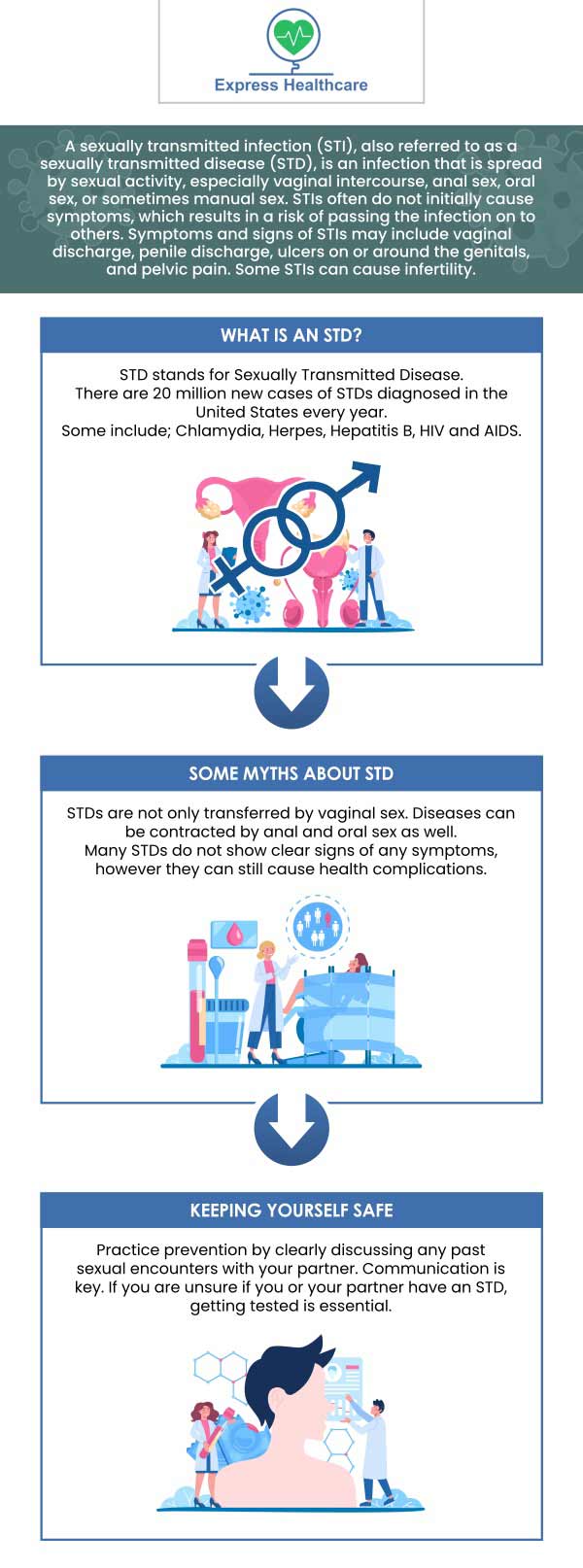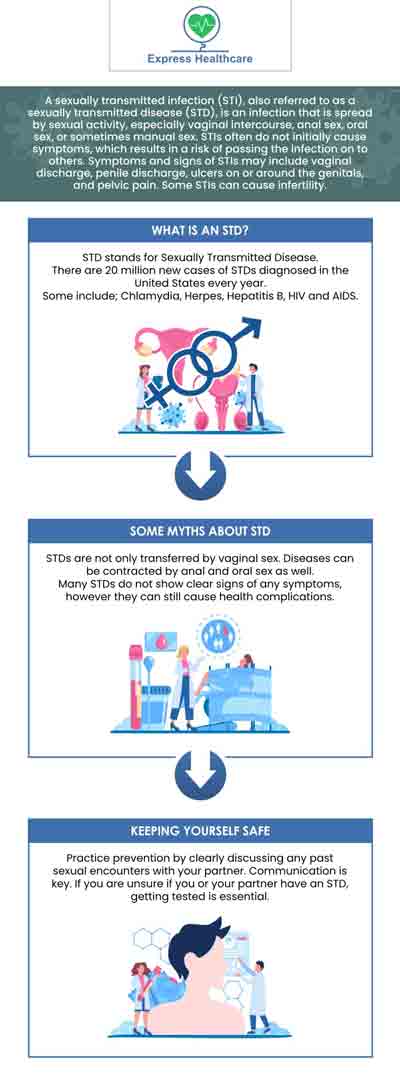What to Ask Before Getting an STD Test
STD are transmitted by sexual contact mainly. It can spread through blood, semen, vaginal fluids, and other body fluids. If you think you could be experiencing common symptoms or that you may have been exposed to an STD, don’t delay to get tested. Your sexual well-being is important! Come to Express Healthcare Urgent Care, our board-certified doctor, Jamal Fadul, M.D offers confidential STD testing. For more information, contact us or book an appointment online. We are conveniently located at 4701 Melbourne Place College Park, MD 20740.





Additional Services You May Need
▸ EKG, Stress Tests, Cardiology
▸ Physical Therapy
▸ Internal Medicine
▸ Urgent Care
▸ Vaccines & Immunizations
▸ On-Site Lab Screening
▸ X-Ray & Imaging
▸ Women’s Health
▸ Occupational Health




